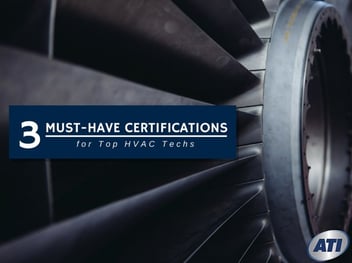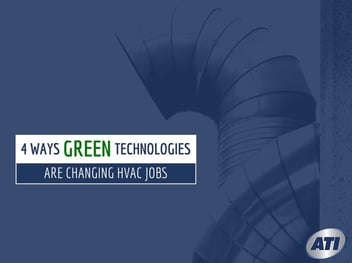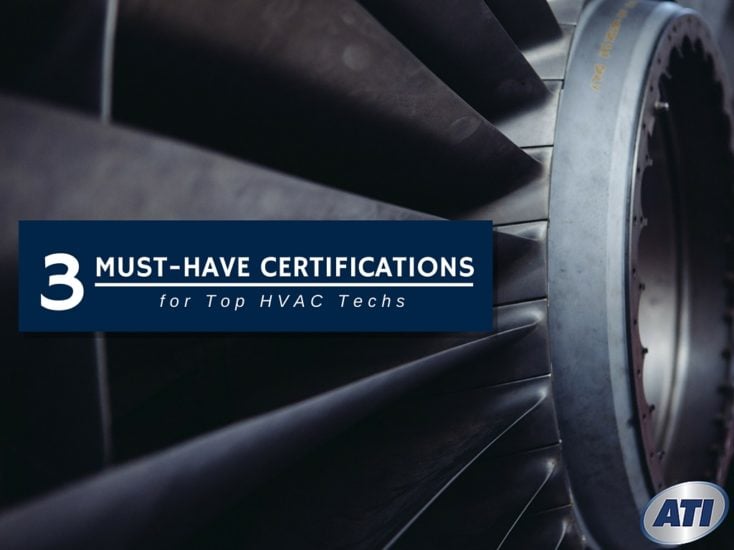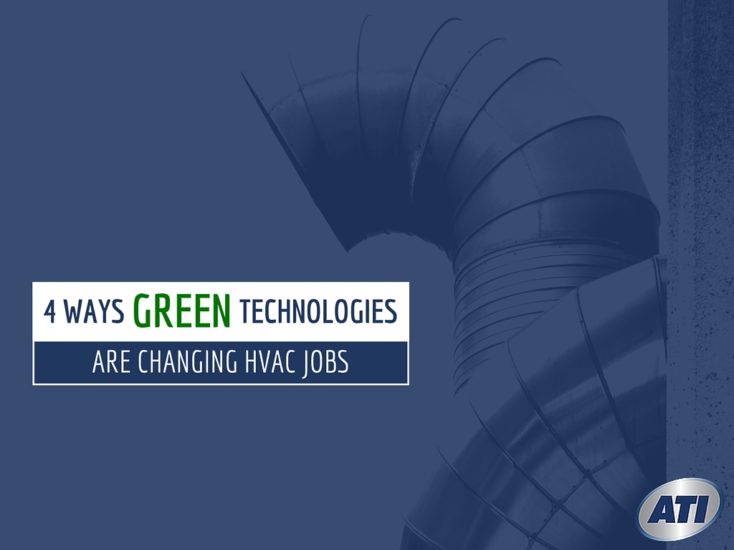HVAC Training Courses: The Ultimate Success Guide
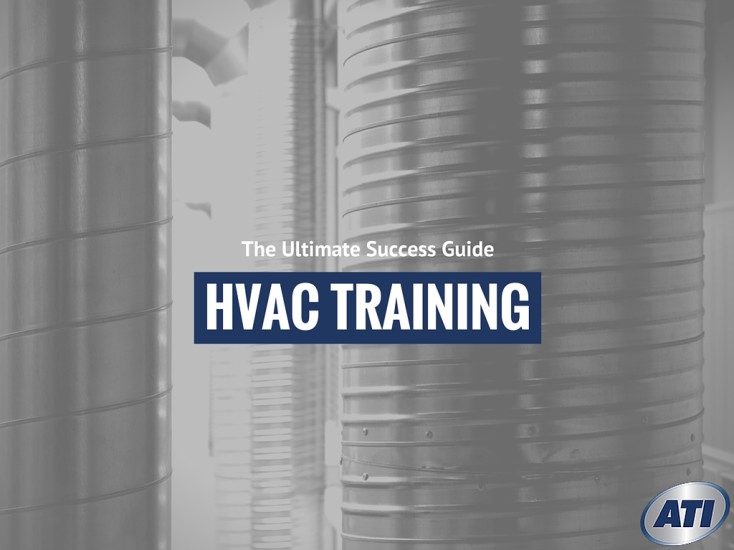
Heating, Ventilation and Air Conditioning (HVAC) technicians are skilled tradesmen that specialize in the installation, maintenance, and repair of HVAC systems. These systems provide heating and cooling for residential and business properties and often have commercial refrigeration applications. Most states require technicians to obtain a license before providing HVAC services. This is not a field where you can apprentice in without taking a final exam, but investing in a certification program could help you start working in the field immediately as an apprentice.
What’s the Career Outlook for HVAC Technicians?
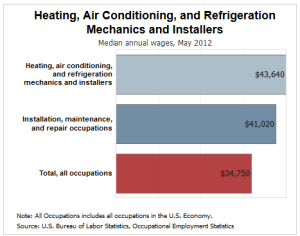 The Bureau of Labor Statistics projects 21 percent job growth between 2012 and 2022 for HVAC technicians. The median annual income for employment in the field in 2012 was $43,640 per year, which is a significant percentage of the average household income of $51,371 listed in the 2012 census. The top ten percent in the industry earned well above the average household income, bringing home a salary in of more than $68,990 while the lowest 10 percent took home less than $27,330. Since apprentices earn approximately half of what a certified professional can expect to earn, entering the trade with certifications in hand could pay off.
The Bureau of Labor Statistics projects 21 percent job growth between 2012 and 2022 for HVAC technicians. The median annual income for employment in the field in 2012 was $43,640 per year, which is a significant percentage of the average household income of $51,371 listed in the 2012 census. The top ten percent in the industry earned well above the average household income, bringing home a salary in of more than $68,990 while the lowest 10 percent took home less than $27,330. Since apprentices earn approximately half of what a certified professional can expect to earn, entering the trade with certifications in hand could pay off.
Why Take HVAC Training Courses?
Obtaining certification in HVAC gives you hands on experience in installation and maintenance of existing HVAC systems. In many states, installers and repairmen for these systems are required to have certification from the U.S. Environmental Protection Agency (EPA). This certification ensures that installers know how to handle and dispose of refrigerants that release chemicals into the atmosphere, read blueprints for installation, and tackle regular maintenance.
Types of HVAC Certification
There are four types of HVAC certification available under Section 608. Each type ensures that technicians are prepared to work on specific types of jobs.
- Type I
This certification allows you to work on window unit air conditioners, vending machines and other standalone appliances. - Type II
High-pressure refrigerant equipment like residential HVAC systems, heat pumps and supermarket refrigeration require a Type II certification. - Type III
Low-pressure refrigerant systems like chillers require a Type III certification. - Universal
With a Universal Certification, you can work on any and all types of HVAC equipment.
What is the Exam Like?
The EPA Section 608 certification exam is multiple choice and covers all four types of certification. If you pass the core set of questions, you can then qualify for any of the different types of certification, depending on your scores. For example, if you pass the core set and the questions related to Type I, you will obtain that level of certification.
You can retake the exam as many times as you need. Plus, you will only need to pass any of the areas that you didn’t complete the first time. As soon as you have passing scores on all parts of the test, you can obtain the Universal certification. This makes it easier to start working in the industry and learn on the job before re-taking the exam.
Combined HVAC Training and Educational Requirements
To become a fully licensed HVAC technician in many states, you will need to combine a certification and apprenticeship program.
- Certification
This part of your education could take anywhere from six months to two years, depending on the program and class scheduling. - Apprenticeship
Apprenticeship programs typically last up to four years. These programs can combine classroom time and field training in partnership with local unions and professional organizations. In most cases, you could start your apprenticeship at the same time you begin your class time in preparation for your certification exam.Not all states require both certification and licensure. Some may only require one or the other. In states where the only requirement is certification, you might be able to find direct entry positions that skip the apprenticeship. In states like South Dakota, Colorado, and Wyoming, there is no licensure or certification requirement, so you could start working with an experienced professional immediately in those states.
Other states require technicians to pass a State Exam and complete a minimum number of training hours at an accredited school. In addition to these requirements, there may be a work experience requirement that would be satisfied by an apprenticeship program.
Why Go for an HVAC Certification?
Even in states where there is no certification requirement, there are some benefits to choosing this educational route. A certified installer may be able to work across state lines more easily and may be more likely to move on to supervisory roles.
Great school to study HVAC at, had a good time there and they helped me get a job at MSCO!
Posted by Tommy Harrah on Friday, August 14, 2015
Get the Right Training & Become an HVAC Technician
The first step to becoming a licensed HVAC technician is enrolling in an accredited program. If you are interested in our HVAC Technology with Service Management (AOS) program, contact Advanced Technology Institute today. You could finish the training program in as little as 19 months, preparing you to sit for the next EPA Section 608 exam.
DISCLAIMER – Advanced Technology Institute (ATI) makes no claim, warranty or guarantee as to actual employability or earning potential to current, past or future students or graduates of any educational program offered. The Advanced Technology Institute website is published for informational purposes only. Every effort is made to ensure the accuracy of information contained on the AUTO.edu domain; however, no warranty of accuracy is made. No contractual rights, either expressed or implied, are created by its content.
Gainful Employment Information – HVAC Technology with Service Management (AOS)
Gainful Employment Information – Air Conditioning & Heating Technology (Diploma)
For more information about Advanced Technology Institute or any of our programs click here: http://www.auto.edu/ or http://ow.ly/VoydP.
Industry Knowledge
Welcome to the Advanced Technology Institute's Blog, your resource for industry insights and discussions on technologies shaping the future of automotive, heavy vehicle, hvac, welding, and other related career paths.
Explore how ATI's curriculum and hands-on learning opportunities can propel your career in the tech-driven world.


